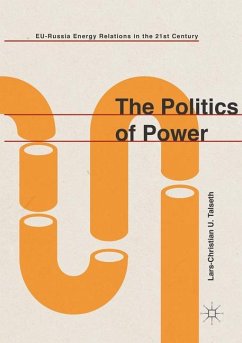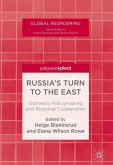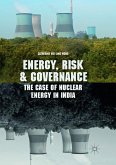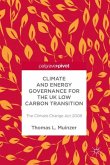This book sheds new light on the complex EU-Russia relationship, by providing the first comprehensive account of the EU-Russia Energy Dialogue. The author examines why Moscow and Brussels have failed to cooperate in this crucial area of interdependence. By invoking constructivism and Mikhail Bakhtin's concept of dialogue, and drawing on dozens of interviews with Russian and European officials, Talseth argues that the Energy Dialogue was unsuccessful because its interlocutors failed to come up with a common narrative for cooperation. Evidence suggests that the collapse of the Energy Dialogue was not pre-determined and initially there was a great deal of optimism and goodwill. Ultimately, the outcome of the Energy Dialogue was shaped by the unfolding time-space of Russo-European relations.
Bitte wählen Sie Ihr Anliegen aus.
Rechnungen
Retourenschein anfordern
Bestellstatus
Storno








